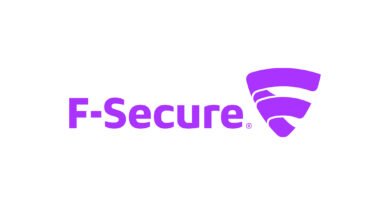
Tips to Improve Your Internet Privacy
The internet is a place where you can express yourself freely, but it is also home to malicious entities, who like to peek at your data, gain access to it by any means whatsoever and turn your life upside down. That is why maintaining a strict level of internet security and privacy is nothing short of essential in this day and age. By protecting your information online and hiding your activities from the eyes of interested parties, you can continue to reap the benefits of the World Wide Web without fearing for your safety. In that regard, the following tried-and-tested tips will help you improve your internet privacy. Check them out.
 Secure Your Systems
Secure Your Systems
Before you can set out to change the settings on the web, you should secure your systems and make your digital fortress impenetrable. Start with enabling the firewall on your network and connected devices. This program allows outward communication while blocking unauthorized access. Next, get your hands on a solid internet security suite, such as the one used by Cox internet customers. This software can help protect your browser, in-home network, PCs, tablets, smartphones, and other devices with state-of-the-art antivirus, antimalware, and antispyware detectors. Once your basic defenses are up to speed, move on to social settings.
Limit Social Media Viewership
Social networking sites like Facebook, Instagram, Twitter, and Snapchat are great platforms for virtual communication, idea expression, and creativity stimulation. They enable you to get in touch with your childhood friends, upload visual memories, and follow influencers and brands. However, did you know that your data can easily get hacked on social media? According to a press release, nearly two-thirds of American adults have experienced data breaches of some sort on their personal social media profiles at some point. There have also been instances of information leaking and blackmailing. So, stop whatever you are doing, head to the settings of your active social accounts, and restrict the privacy to only those people who you know and trust. Also, disable the ‘can search engines track you’ feature for additional protection, if you deem it necessary.
Reinforce Passwords
A password is your best bet if you want to retain your privacy online. This security measure works like a padlock, only letting those people inside who have the right key. By password-protecting your network and connected devices, you can successfully keep hackers out of your system. Make sure that the password is unique, at least 12 characters long, a mixture of letters, symbols, and numbers, not your PII (Personally Identifiable Information), and certainly not predictable. For email accounts and social media, apply two-factor authentication, which is an OTP (One Time Pin, sent via SMS) and a password combined. Double the security, double the satisfaction.
Prefer Encryption
Encryption is a process, which converts “readable” information into indecipherable code. Having your conversations on the web tunneled by an encryption software can certainly give you the privacy you desperately require. Many VPNs (Virtual Private Networks) deliver encryption services for web-based activities. If you perform regular financial transactions, then get a credible VPN connection. Besides these, download only those messaging apps that have end-to-end encryption, as opposed to encryption-in-transit. The first keeps your private chats “readable” only for you and the people involved, whereas, the second gives one-way encryption, making your chats visible to the messaging provider as well. WhatsApp is a reliable messaging application in this regard, with advanced end-to-end encryption protocols.
Keep a Beta Email & Phone
A lot of the websites these days, mostly e-magazines and online stores, require you to enter your email address and phone number before letting you read an article or browse an item. Why? So that they can build their email subscriber lists and send you newsletters. Though this activity is conducted for marketing purposes mainly, it can turn around quickly and knock you off your feet if the data is sold by the site to a third-party vendor. As a result of which, you’ll receive tons on spam and phishing emails on your account while having to deal with annoying robocalls on your phone. Luckily, there is a way out of this. Create a secondary email account and purchase a separate phone SIM for online browsing or shopping sessions. When a site requests you to enter the data, go ahead with the beta information, while preserving your alpha email and phone. This is a smart way to ensure your privacy online.
So, How Can You Improve Your Internet Privacy?
Online privacy is precious, which is why you should use the aforementioned tips to hide your data from the eyes of cybercriminals on the web. The tips range from strengthening your network and devices to safeguarding your primary email accounts, social media profiles, and phone details. Don’t hesitate to go the extra mile, and you’ll stay safe from possible breaches in the future.









